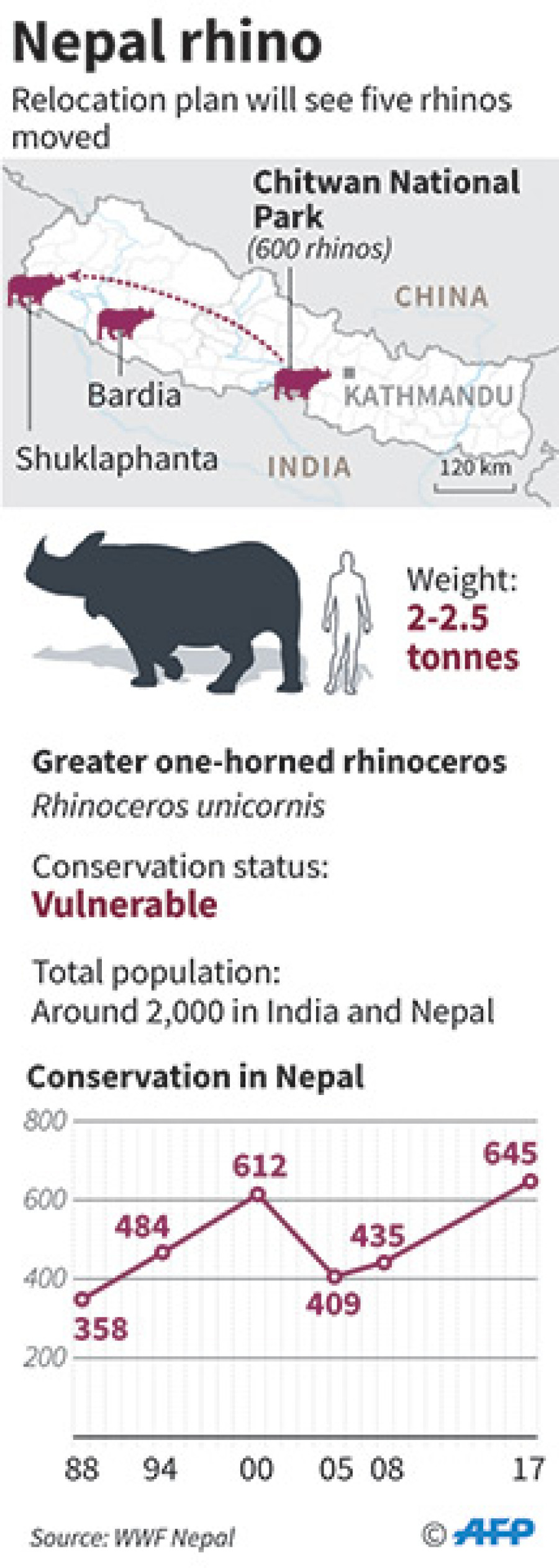National
Rhinos continue to face threat from poachers
The country would have been celebrating zero rhino poaching for third consecutive year on May 3, a feat in Nepal’s conservation efforts, had there not been a major setback on the night of April 7 when poachers killed a one-horned rhino in the Chitwan National Park (CNP).
Samipa Khanal
The country would have been celebrating zero rhino poaching for third consecutive year on May 3, a feat in Nepal’s conservation efforts, had there not been a major setback on the night of April 7 when poachers killed a one-horned rhino in the Chitwan National Park (CNP).
Authorities with the support from locals and other concerned stakeholders have in recent years managed to control poaching, but incidents of killing wildlife are yet to come to an end.
The April 7 poaching of the rare one-horned rhino, whose number has significantly gone up to around 645 due to concerted conservation efforts, came a grim reminder that still a lot of efforts will be required to save endangered species including rhino and tiger.
In the last seven years, the Central Investigation Bureau (CIB) has seized 15 horns and 13 hooves of rhinos and a rhino skin from several parts of the country. According to data provided by the CIB, a 52 people have been arrested in this period. They were arrested from several districts including Bhaktapur, Lalitpur, Makwanpaur, Rauthat, Bara, Sunsari and Chitwan.
In 2015, the CIB arrested a man who had been on the run after killing a rhino. He was said to be involved in trading rhino horn. But most of the arrestees have been found to be foot soldiers, with leaders of poaching rackets mostly managing to get away from authorities radar.
“Almost all of the individuals we have arrested are village level mediators who work as per the orders from those who involved in illegal wildlife trade, and they are mostly unseen,” said DSP Praveen Pokharel, chief of Wildlife Control Bureau under the CIB.
“These arrestees represent certain ethnic communities or indigenous groups. Unless the high-profile illegal wildlife traders are arrested, the endangered species will continue to remain vulnerable.” Rhino poaching carries a maximum penalty of 15 years in jail or Rs 100,000 fine.
Mostly, those who work for the high-profile illegal wildlife traders face the action.
Rhino horns can sell for tens of thousands of dollars on the international black market and are used in traditional medicines in China and Southeast Asia.
In the recent case also, the body of the rhino was found near Dhrubaghat in Belhatta Green Forest in the CNP buffer zone-around, with its horn chopped off.
According to park officials, the nature of poaching now and in 2014 is similar, which indicates the “real poachers” are still active and continue to pose threat to rare one-horned rhinos.




 20.06°C Kathmandu
20.06°C Kathmandu















